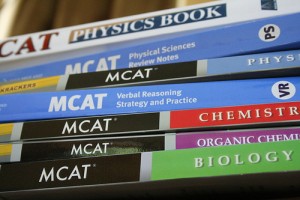
My next piece of advice is to master the test! The test administration association will have instructions and disclose topics that will be included in the test. It is imperative to be a master in these topics. Review, review, review! And practice, practice, practice! Many people may resort to test prep courses such as Princeton or Kaplan which helps guide studying the topics that will be covered on this test. Although, I did not take any of these courses I have heard from fellow classmates that it is important to go beyond what you learn in these sessions and also do some self-learning on your own. Another tool to help you with studying is to get practice tests. Many test administration associations will allow you to purchase practice tests. I recommend you try a test “cold turkey” which can provide an initial benchmark of your strengths and weaknesses. Then do another test when you have studied the material and see how you have progressed. Here, you will be able to see what still needs to be worked on and you can adjust your studying accordingly leading up to the actual test. In the last week leading up to the test, I would suggest simulating the actual test experience. Use any remaining practice tests to re-enact an actual exam day. This could require waking up early, as if it was the test day, along with starting and ending the test at the exact same time as the actual test. This will help make you feel more at ease on the actual test day.
I think it’s also important to be confident in your abilities and really let that show when you write the test. These tests are hard, but they’re not impossible! My last piece of advice is to give it your all!
0 comments on “Test Prep 101”